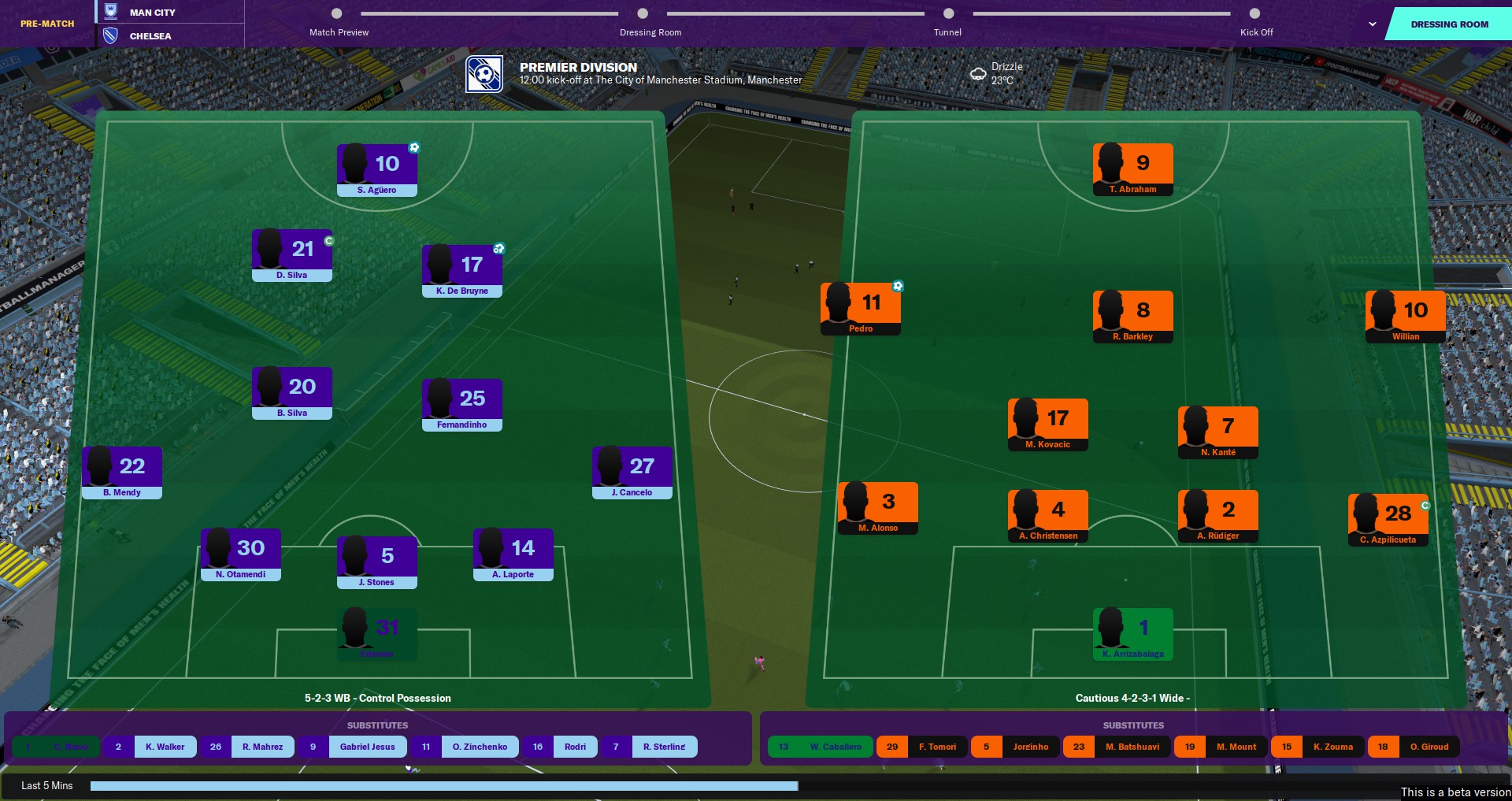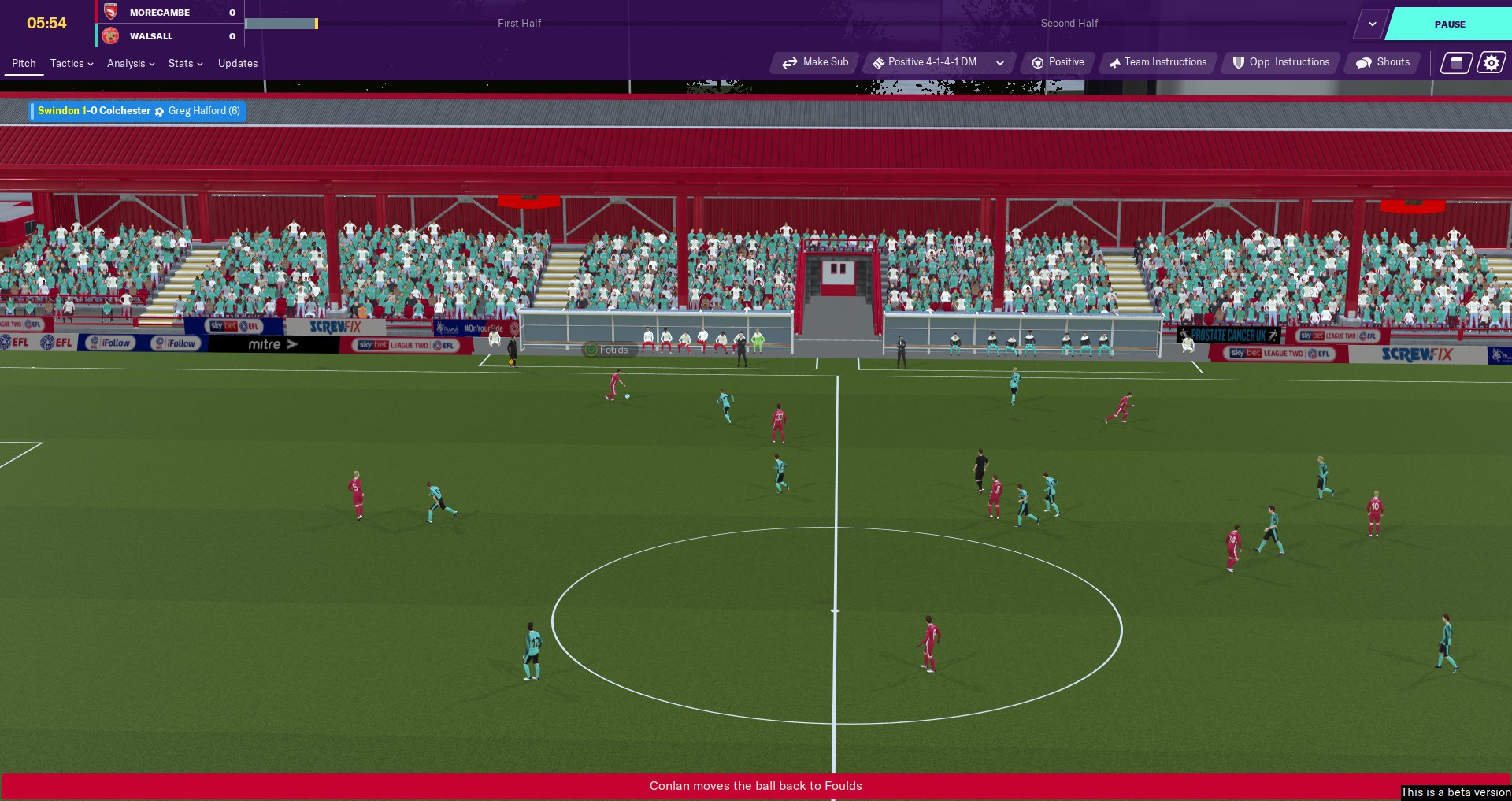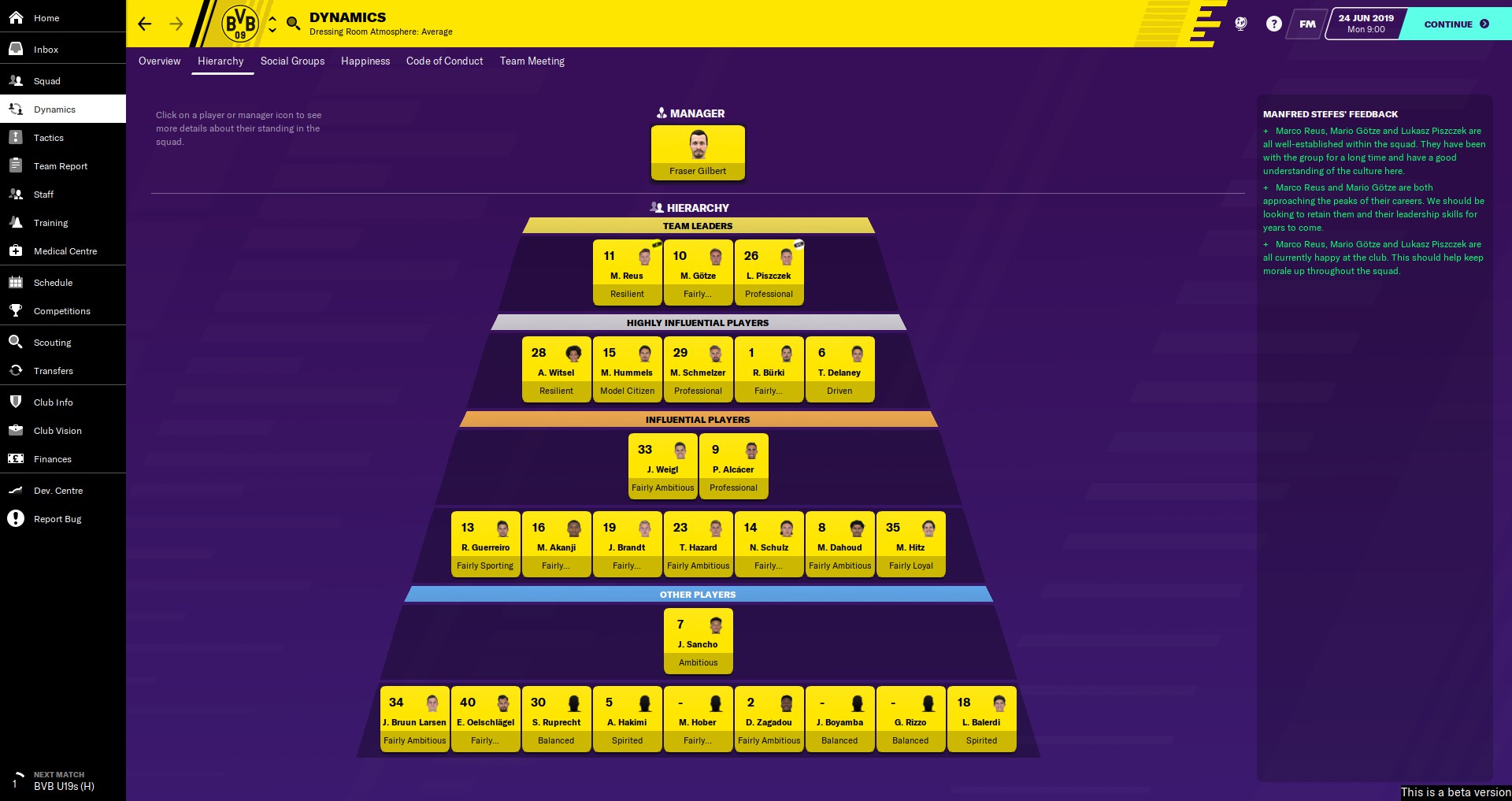
What Is It? The latest in the long-running management sim series.
Expect To Pay $50/£40
Developer Sports Interactive
Publisher Sports Interactive
Reviewed on RX580, AMD Ryzen 5 2600X, 16GB RAM
Multiplayer? Yes
Link Official Site
This year’s Football Manager has forced me to rethink how I approach running a successful football club. In the past, I’ve focused my efforts on identifying the perfect tactic, riding the wave of success, and then adopting that exact same approach at every team thereafter. For the first time in the series’ history, I feel like I can’t do that with Football Manager 2020. Instead, I’m being required to think more strategically about how to achieve lasting managerial glory.
The result of this is a new feature called Club Vision, which vastly expands your interaction with the board from season-to-season. From the minute you join a new team, you’re hurled into a meeting to discuss the specific objectives you need to focus on, from achieving a certain league position, to playing a particular style of football. It can get very specific, too, such as only signing players under 23, and then being required to sell them for profit later on.
These ‘Club Culture’ objectives are tailored to the team you’re managing, and align pretty closely with real-world expectations. It’s entirely plausible that I could be fired by Premier League side Wolves for failing to sign enough high-profile or Portuguese players, for example, even when delivering reasonable results on the pitch. I’m now being forced to consider how I approach the job on a case-by-case basis, as well as analyse whether certain teams actually mesh with my style.

It’s a highly effective system for replicating the turbulent career of a manager, where even successful bosses can find themselves heading to the job centre after making a wrong move. You can, however, attempt to avoid any potentially untenable situations by negotiating your five-year plan—a year-by-year layout of how the board expects you to perform—which can be adjusted every season, helping to generate a very clear view of your long-term expectations.
The downside to Club Vision is that you won’t get much out of it if you’re a casual player. The majority of Football Manager 2020’s major new features are centred around long-term play, and it’s hard to take advantage of them without at least playing through a couple of in-game seasons. The new Development Centre tool is a prime example of this, serving as an all-encompassing youth hub that becomes more useful the longer you spend with it.
It starts out as a method for tracking the development of your youth players, and how close they are to challenging for a first-team spot. But then, after six in-game months, it evolves into a valuable resource for identifying the potential of your incoming youth candidates, as well as providing detailed feedback on both the happiness and effectiveness of your players out on loan. It’s the sort of feature you can, and probably will ignore at the beginning of your managerial reign, but that reveals itself to be vital as the seasons wear on.

The match engine itself looks mostly the same as last year’s game. There are some improvements—player and manager models appear slightly enhanced, while patches of rain and mud appear on the pitch in turbulent weather. Players still look like they’re skating on ice at times, but their intelligence feels like a step up from FM 2019, featuring more creative attacking scenarios, flashier highlight-reel saves, and smarter decision making in defence.
I have noticed a handful of issues, though. Notably, one-on-one opportunities are too prevalent and tough to convert at times, although this appears to have already been identified as a pre-release problem by Sports Interactive. Attackers are often reluctant to square the ball to open teammates as well, opting instead to shoot from overly tight angles. Neither of these are game breaking, but they’re the sort of thing that feels irritating when losing 4-1 to Stoke on a tough Tuesday night.
The remainder of Football Manager 2020’s feature set is primarily business as usual, albeit with plenty of excellent quality-of-life updates thrown in. Some of them, again, are tailored towards long-term play, such as the convenient proposed playing time feature, which allows you to designate a player’s squad status across multiple years. It means I can play someone like Man Utd’s Mason Greenwood on an occasional basis in year one, but still keep him happy by promising increased game time in future seasons.

There’s a handy set of new features for newcomers and casual fans too, including improved tactics tools and recommendations, as well as detailed team selection advice. The latter can prove particularly useful when slogging your way through pre-season, with convenient feedback relating to which players should be picked for your next match, and why. It’s easy to gloss over a player whose fitness or training performances aren’t up to scratch, and this feature works to eliminate that.
But regardless of whether you’re a newcomer or series veteran, you’ll need to sink tens—if not hundreds—of hours into FM 2020 to truly realise its exhaustive potential. The fact that Sports Interactive have aimed the headline features almost entirely at loyal and dedicated players is commendable, but it means that certain new aspects can initially appear underwhelming. You’ll need to play for a few seasons to reap the rewards of Club Vision, for example, which won’t suit everyone.
If you can afford the time though, this year’s game is absolutely worth your attention, particularly if long-term saves are your thing. There’s scope to play for countless seasons and still be presented with fresh challenges, and the new Development Centre system makes building for the future more compelling than ever. It’s Football Manager with a substantially greater dose of longevity, and that both delights and terrifies me at the same time.
Read our review policy
Another superb entry that feels tailor-made for the series’ most dedicated players.


